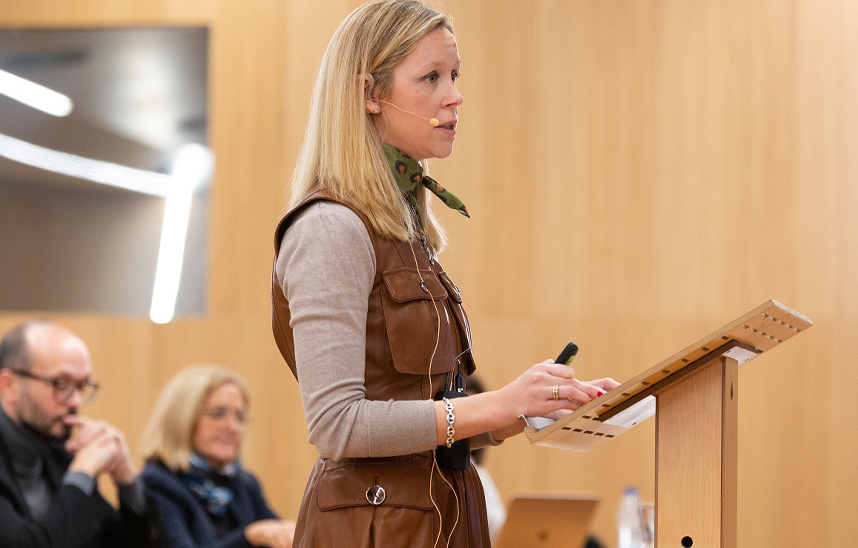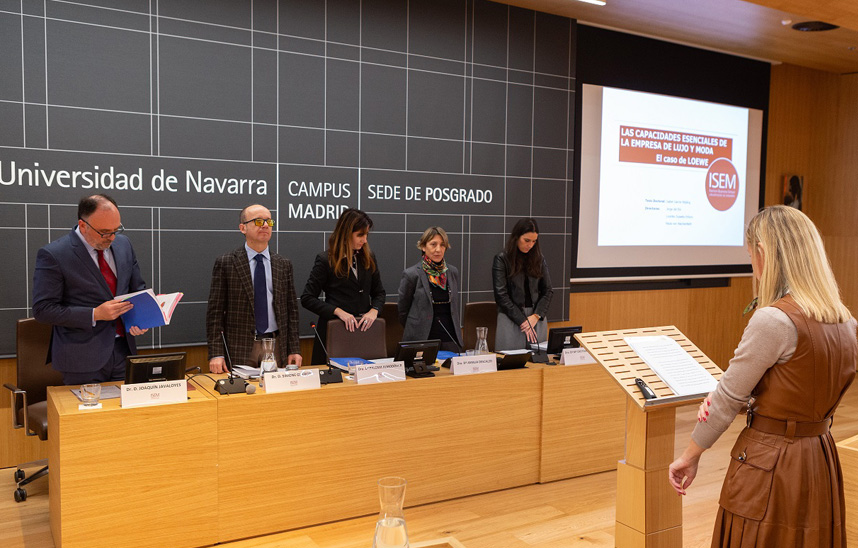An ISEM Fashion Business School thesis creates a theoretical model that explains the essential capabilities of a luxury and fashion company.
Isabel García Hiljding empirically contrasts the proposals derived from the new model using the LOEWE case study.

Photo /Isabel García Hiljding defended her doctoral thesis at ISEM Fashion Business School.
04 | 12 | 2019
"Artisanal know-how, the creative director and family heritage are a source of competitive advantage in luxury and fashion companies". This was stated by researcher Isabel García Hiljding, who defended her doctoral thesis "The essential capabilities of the luxury and fashion company. The case of LOEWE" at ISEM Fashion Business School. This research is the fourth doctoral thesis to be defended at the School.
Given the major changes in the current business environment, this thesis is based on the idea that "the luxury and fashion sector is no stranger to these changes, and these companies have been pushed to compete in increasingly complex environments where the process of adaptation is key". To achieve long-term survival and generate a competitive advantage, according to Hiljding, "luxury and fashion companies need adequate resources and capabilities, know how to identify them correctly and implement strategies to exploit them properly".
In this sense, the specific objectives of this thesis are, firstly, to formulate a new theoretical model that allows the application of the Theory of Resources and Capabilities to the luxury and fashion company; and, secondly, to empirically contrast the new model through the LOEWE case.

PhD in Applied Creativity
Isabel García Hiljding holds a degree in Business Administration from the University of Navarra and an Executive Master in Fashion Business Administration from ISEM Fashion Business School. She has taught at the business school itself, where she has also worked in the Development department, managing international relations, the implementation of new programs and Alumni. Currently, she is the coordinator of Atelier by ISEM, the first accelerator of FashTech companies in Spain.
Jorge del Río, academic director of the Executive Master in Fashion Business Administration at ISEM, was in charge of directing this thesis together with Lourdes Susaeta and Paula von Wachenfeldt. The defense tribunal was composed of Paloma Almodóvar, Amalia Descalzo, Simone Guercini, Joaquin Javaloyes and Cristina Sánchez-Blanco, who gave the grade of outstanding.
This research is part of the PhD program in Applied Creativity, promoted by the School of Architecture, the School of Communication, ISEM Fashion Business School and the University of Navarra Museum, which aims to promote the study and establishment of creative processes in industries that require this competence for their activity.
